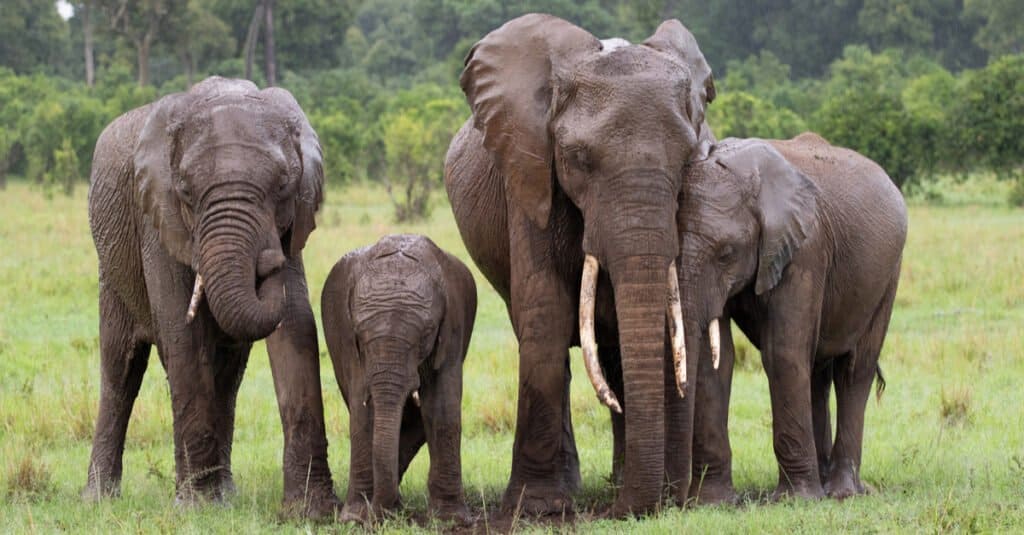
JUNGLE: 2022
INTRTODUCTION
We have already stepped into 2022. January has passed amid cold. February has arrived, and it is now time for the parting of winter to pave the way for Spring. But then the pleasure of traveling in winter is always unique. And so, we planned out a day tour on the 1st of this month to Valkimachan, Rarheswar Shiv Mandir, Medhashram, Shymarupa Kali Mandir, and Ichai Ghosh’s Deol. Bulkimuchan is in eastern Burdwan, while the rest are in Durgapur and beyond.

We left in our car in the morning around 8 AM. We were three, son Saikat, me and Shubhankar. Shubhankar was behind the wheel. Shubhankar is pretty good at driving on all kinds of roads. After a brief halt at Shaktigarh Lancha Kuthee for mouth-watering breakfast with Kachori and famous Lancha, we proceeded to Valkimachan.
Welcome to thrills and frills of Jungle : Valkimachan

Backstory

Once upon a time, many bears were here in the jungle. The local zamindars of that time and the wealthy community people used to hunt bears and other animals from the scaffold/Watchtower (Muchan in Hindi and Bengali).
/getty-brown-bear-56afcf215f9b58b7d01d5195.jpg)

Unveil.Press team’s interaction with Aranya Sundari Resort Manager about past history of Valkimachan jungle and its present state

Bankim Ghosh, introducing himself as Manager of Aranya Sundari resort in Valkimachan forest, said that the pond beside the resort was the only those days. It was smaller also. In this pond bears, and other wild animals used to come to drink water. Then the landowners and wealthy people used to hunt from the nearby scaffold (Machan).

Bankim made special mention of Bhalluk Raja of Bihar origin. “Although Bhalluk raja was not a king, he was a zamindar, but people considered him as a king. He also used to hunt from the scaffold (Muchan)”, said Bankim.
There was a village nearby whose name was Vulki. However, due to the scaffolding (Muchan in Hindi and Bengali) here, the name of this place is called Valkimachan.
There is a secret tunnel near the scaffold. “I heard that the famous dacoit Bhabani Pathak and his companions used this tunnel,” Bankim said.

“But, unfortunately, there is no bear or wild animal in this forest in today’s date. Only hyenas, foxes, wild pigs, rabbits, or snakes reside in the inner jungle. But yes, sometimes herds of elephants from the adjacent Bankura forest strayed into Valkimuchan forest obviously by giving the slip to the forest guard’, said Bankim.


About two months ago, a herd of elephants had strayed into here from the Bankura forest. Unfortunately, the elephants also damaged nearby paddy fields. Forest officials and employees had to toil hard to bring the elephant herd back to the Bankura forest. Even the forest department has to compensate for the loss to the paddy fields, stated Bankim.

The forest of Valkimachan merges with the forest of Bankura, informed Bankim.
Myths of Valkimachan Jungle
A popular piece says that a king lived many years ago here. The queen was pregnant. One day the royal couple wandered in the valkimachan forest and separated in the jungle. The queen died after delivering the child. A bear took care of the infant. When the king came in search, he heard the pang of a child. The king realized the child of his own. So he brought back the child. Since then, the bear has become significant in Valkimuchan. (Source/Courtesy: www. the holidays story.com)
Unveil.Press team’s views:
Valkimachan Jungle is not dense. But indeed a very picturesque place for a day trip or a picnic.
For the nature lover, Valkimachan is undoubtedly a delightful place. But, to be honest, there is nothing else in Valkimuchan except the jungle, the ruins of scaffold (Machan), and a lake near the resort. In a word, Valkimachan has nothing but everything. Yes, nature is the irreplaceable asset here, before whom all the wealth of the world bows down.
If you want to enjoy yourself here, get yourself absorbed in nature.
When you walk through a pile of dried fallen leaves on the forest floor, the crunchy crackling sound evokes romanticism in you.

In this way, tearing through the forest, you reach the scaffold. Today, this ruins of scaffold (Muchan) is a silent witness to the days when wealthy landowners hunted innocent bears to quench their thirst for entertainment if the history of Valkimachan speaks the truth.
Next Destination : Rarheswar Temple, Durgapur

This temple was built around the 12th century. The temple was built by Raja Ballal Sen of the Rar dynasty. It is made in the Nagara style with Laterite and sandstone and is famous for its colossal lingam enshrined in its sanctum.


Legend has it that King Ballal Sen suffered a severe ailment. Then, Lord Shiva appeared in his dream, asking him to build a Shiva Temple to restore health. (Source/Courtesy.website:www.beautyofdurgapur.com)
“The present height of this temple is seven feet. Earlier, its height was 20 feet. But due to natural calamity, the temple was renovated/reformed twice. Temple was built during the Rar dynasty; hence, Rarheswar Shiva Mandir temple. The pinnacle (peak) of the temple is in the shape of a conch. Unfortunately, the temple’s peak (Churaha in Bengali) was damaged by natural calamity. But efforts have been made to restore it and bring it back to its earlier shape.”, informed Nandadulal Chakrabarty, the temple’s chief priest (Sebayit).
Over to Garh Jungle

Background of Garh jungle:
The history of this area is very complicated. This place is known as Garh Jungle. We get a narrative by combining an old account with the prevailing mythology. Here in Garh jungle, we have the fort of Ichai Ghosh.
During British rule in 1833, archaeologists found a Cooper inscription that bears the name of Ichai Ghosh. He was a feudal king. Ichai Ghosh had significant influence and honor in the Garh jungle, as perceptible from the inscription on the copper plate. Therefore, we can assume the period of Ichai Ghosh to be around the 11th century AD. Mahipala of the Pala dynasty was then the king of Bengal.
So the story of Ichai Ghosh, King Surat, Medhashram, and Shyamarupa Kalimata portrays the historical picture of the Garh jungle in totality.

While roaming around here, my attention caught a high slope of the ruined fort of Ichai Ghosh. The fort was destroyed by Lao Sen during his war with Ichai Ghosh.
Medhashram and its story

Medhashram is situated at a distance of 39 kilometers west of river Ajay.
Balipur, which we call Bolpur, had a king, Raja Surat. Due to the conspiracy of his ministers, King Surat lost his kingdom. So King Surat fled to Gur jungle. Medha Muni’s ashram was here at that time.

According to the advice of Medha Muni, King Surat performed Durga Puja. After doing Basanti Puja for 3 consecutive years, with the blessings of Mother Goddess, King Surat got his kingdom back. Since worship took place here in the Spring (Basant) season, the Puja is named Basanti Puja.
But in later years, due to lack of care, this area was transformed into a forest. Finally, in 1992, a Naga Sanyasis revived this place, and Durga Puja resumed.
Interaction of Unveil.Press team with Medhashram Goarchandi trust board Mahant Yograj Brahmanand Giri (Yogibaba):

Yogiraj Brahmanad Giri and Rajgiri Baba asserted that the tradition of the Durga puja festival in our country starts from here. “I have been residing here in this ashram for thirty years, researching the truthfulness of life. So Medhashram has a vast history. The ashram is very ancient. The three Shiv lingas here were found under the soil,” claimed the Yogi baba.



Story of Shyamarupa Kali Mandir,its myth and linkage to contemporary history

Shyamarupa Kali bari is situated in Medha Ashram premises. At that time, a powerful Kapali resided here. (Kapali: worshipper of Lord Shibha and Goddess Kali) . He used to offer human sacrifices. That was the time of King Laxman Sen. Laxman Sen fled the attack by Delhi Sultan and took shelter in the Garh jungle.
Laxman Sen tried to dissuade Kapalik from making the human sacrifice. He clearly said that there would be no human sacrifice in his kingdom. Then the Kapalik told the king that if the king worshiped Mother Kali by offering human sacrifice, his lost kingdom would be retrieved.
When the Kapalik did not keep the king’s word from stopping human sacrifice, state poet (Raj Kavi) Jaydev intervened. As a result, Debi became black for some time due to the prayer of the poet Jayadeva. Since then, Debi has been known as Shyamarupa Kali. But this is all a story. There is no solid proof of the truth.

Apart from myths of varying degrees, the Garh jungle is quiet and serene. Therefore, it is a perfect place for a person loving spirituality. Moreover, traveling through the lonely and wavy Murham road of the Goar jungle itself is a thrilling experience.
Final destination: Ichai Ghosh’s Deol

Ichai Ghosh’s Deol was probably built in the middle of the 18th century. But Ichai Ghosh himself had not made this Deol. Instead, someone from the dynasty of posterity had made Deol in the memory of Ichai Ghosh.
Ichai Ghosh,’ a feudal king,’ belonged to the middle of the 11th century and was very influential. His historical account comes from a Copper inscription (Tamra Lipi) found in 1833.


About Ichai Ghosh, more from historical evidence, we found from the verse of Dharam mangal. From Dharam Mangal, we learned that unable to tolerate Ichai Ghosh’s influence and power, the king of the Gaur dynasty sent his army general, Karna Sen, to teach Ichai Ghosh a lesson.
A war took place on the banks of the Ajay river between Ichai Ghosh, and Karna Sen. Karna Sen was defeated.
Karana Sen’s wife’s name was Ranjavati. In Dharam Mangal, Ranjavati was a goddess from heaven (Swarga Devi). Karna Sen had two children. The eldest son’s name was Lao Sen.
When Lao Sen became mature, he attacked Ichai Ghosh to avenge Karna Sen’s defeat. Ichai Ghosh was blessed with the blessings of Debi Chandi to remain immortal.
But when Lao Sen attacked, Goddess Chandimata gave Ichai Ghosh an order in a dream that he should not fight with Lao Sen., But Ichai Ghosh ignored the dream order of Goddess Chandi-Mata.
After a fierce battle, Ichai Ghosh was defeated by Lao Sen and died. It is mentioned in Dharmanagal that the war had assumed such a severe form that the death toll was so high that the water of the Ajay river had become blood-stained.
The enraged Lao Sen destroyed the fort of Ichai Ghosh. The ruin of the fort’s destruction could be seen in Medhashram.
But all the above said have not cent percent historical evidence. It is a blend of history and mythology.
Summing up our tour story through a Documentary Film.
Visit: Conclusion of
We drove back home after visiting Ichai Ghosh’s Deol. But this tour, in particular, has prompted me to think about myths, Tantra, Shiva, and. Ma Kali reigned supreme in Bengal’s earlier history.
.
Route (From Chandannagar and Kolkata or Howrah etc
1. Drive down Delhi road for a few Kilometers and turn left to Chinsurah-Dhaniakhali road. Go straight till you reach Durgapur Express Highway.
2. Drive straight on Durgapur Express Highway, get past Saktigarh, drive another 35 kilometers before turning to the Right diversion (before Budbud). . Reach Abhirampur market. Ask the local person for Valkimachan.
3. If you are coming from Kolkata or Howrah, catch the Durgapur Express highway and follow the above.
From Valkimachan to Rarheswar Shiv Mandir, Durgapur
1. From Valkimachan, follow state highway (Mankar Road).
2. The state Highway merged with Durgapur Express Highway.
3 The Durgapur Express Highway via Panagarh will take you to Rarheswar Shiv Mandir.
4. Follow google map from Durgapur to Garh jungle and then to Ichai Ghosh Deol












































